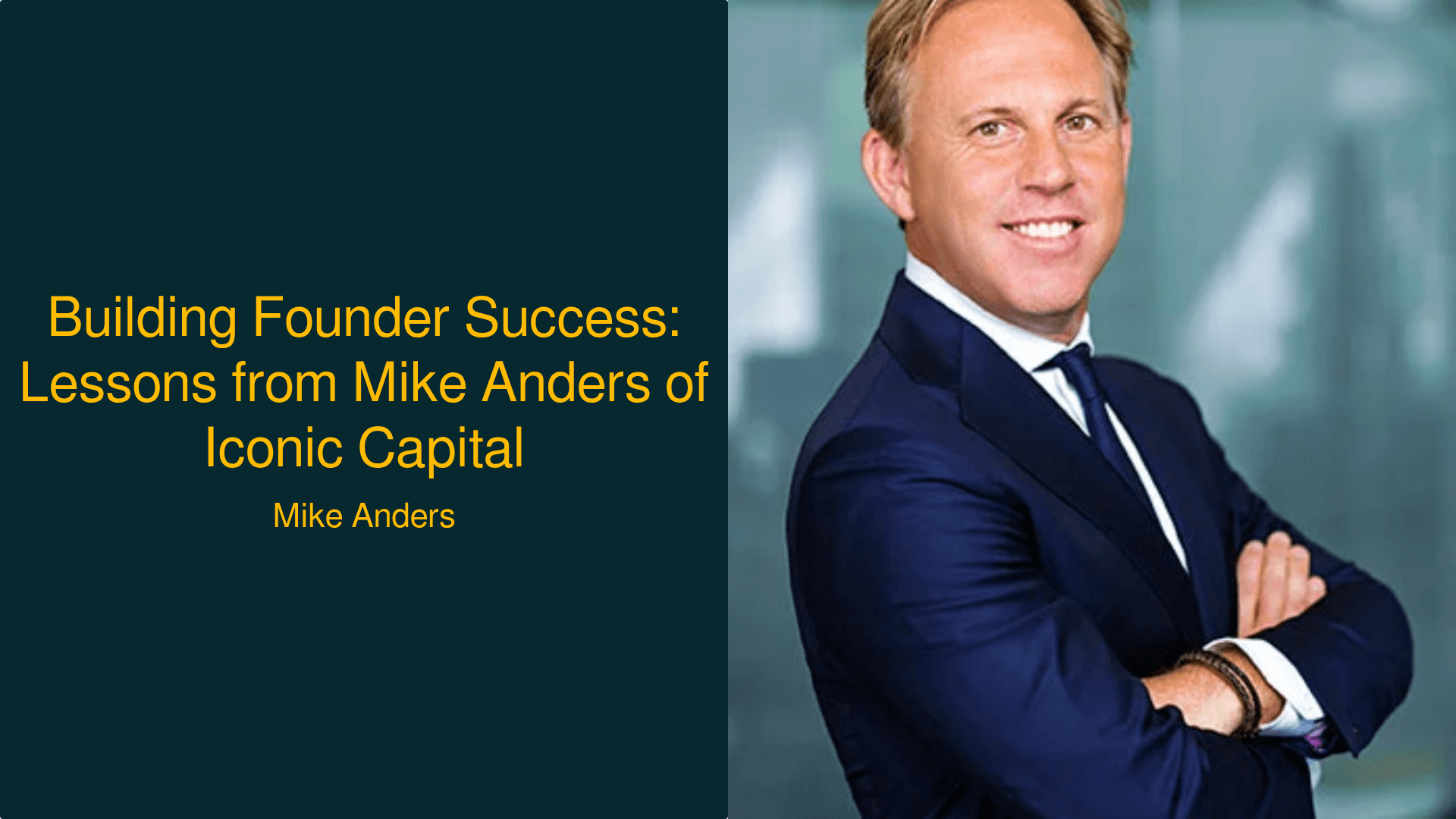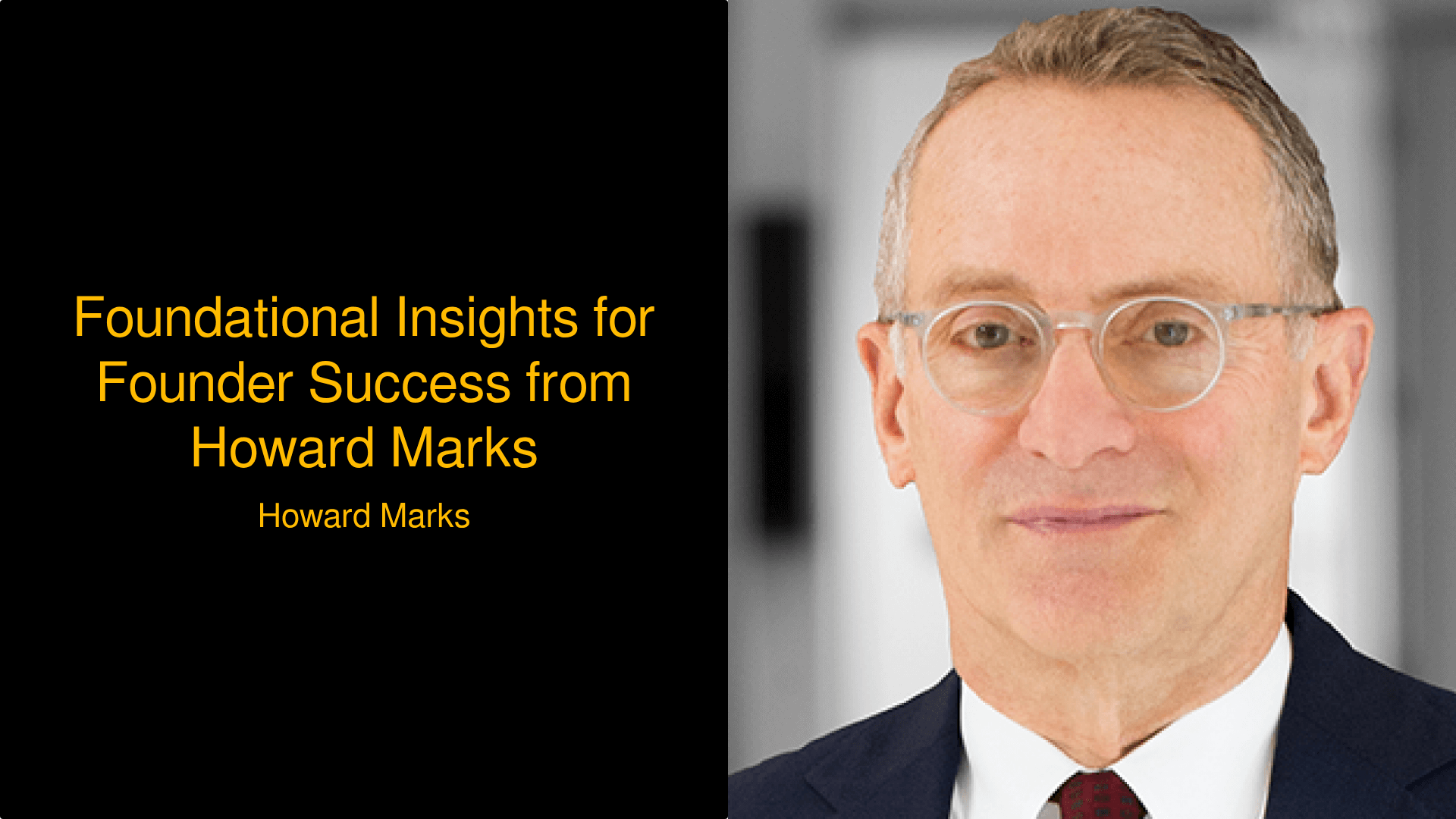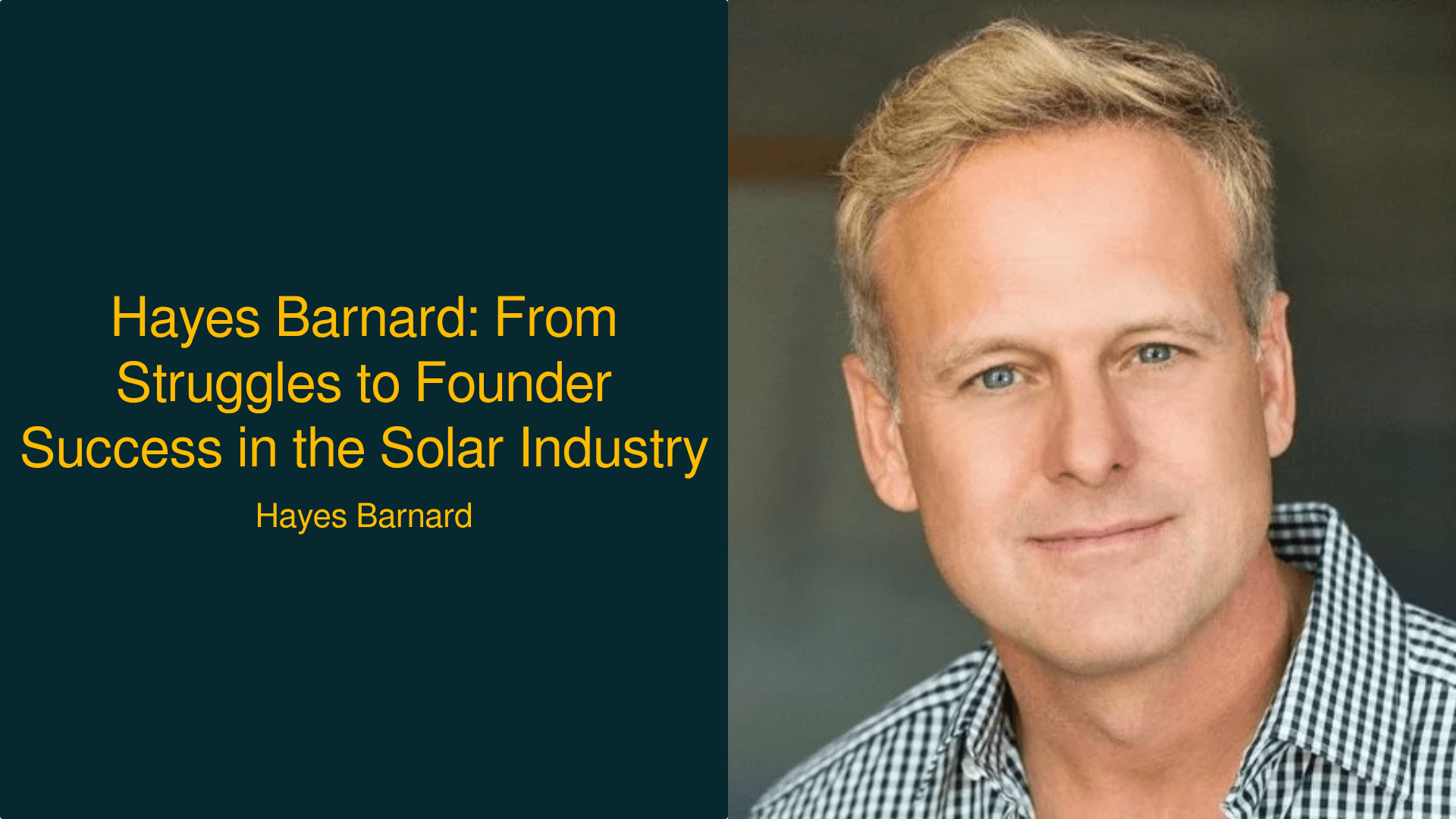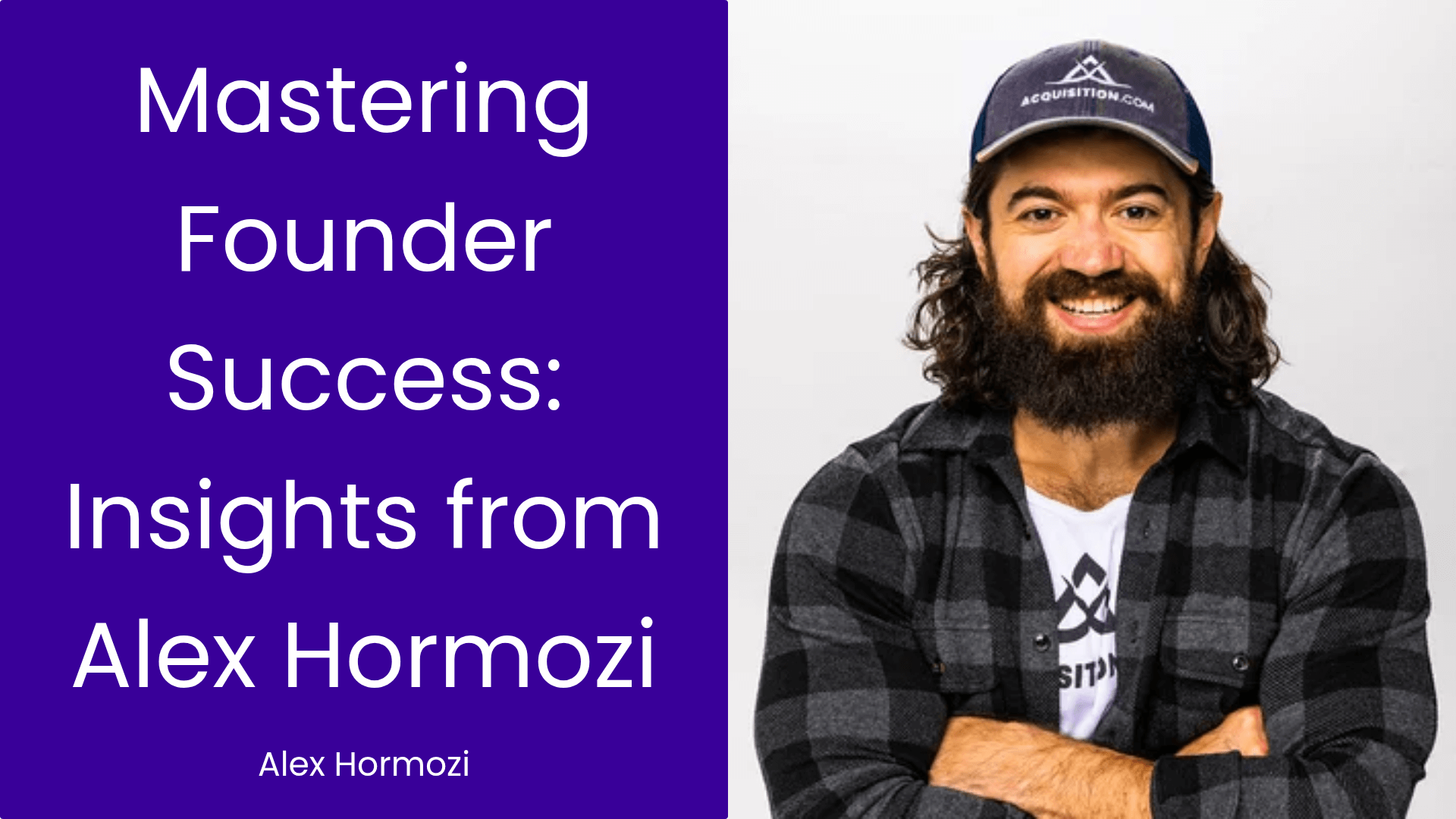Building Founder Success: Lessons from Mike Anders of Iconic Capital
Discover key insights from Mike Anders on founder success and impactful investing.

Building Founder Success: Lessons from Mike Anders of Iconic Capital
In the world of entrepreneurship and investment, few names resonate as profoundly as Mike Anders of Iconic Capital. With a remarkable career steeped in both the financial sector and philanthropic ventures, Mike embodies the principles of founder success. His journey from a disenchanted Wall Street employee to a revered leader in wealth management and impact investing provides invaluable lessons for entrepreneurs seeking to navigate the complexities of building successful ventures. This article delves into Mike’s insights on collaboration, strategic investment, and the philosophy that drives his work at Iconic Capital.
As we unpack key takeaways from Mike’s experiences, we will explore frameworks and actionable strategies that can help founders build impactful businesses. From his unique approach to wealth stewardship to his thoughts on the transformative power of AI and corporate culture, Mike offers a treasure trove of knowledge for today’s entrepreneurs. Join us as we uncover how his journey and insights can guide your own path to founder success.
The Genesis of Iconic Capital: A New Approach to Wealth Management
What we figured out for us is we wanted to be the best caddy in the world to the best golfers in the world. — Mike Anders
Why it matters: Mike’s analogy of being the best caddy highlights a fundamental principle of founder success: the importance of support and collaboration. In the competitive landscape of entrepreneurship, having the right team and advisors can significantly impact a founder’s journey. By positioning themselves as facilitators rather than gatekeepers, Mike and his team at Iconic Capital have fostered an environment that prioritizes the needs and aspirations of their clients—tech founders and CEOs. This approach not only enhances the decision-making process but also builds trust within the entrepreneurial community, leading to more fruitful collaborations and shared successes.
For entrepreneurs, this lesson underscores the importance of surrounding themselves with a team that is not only skilled but also aligned with their vision and values. By cultivating a culture of collaboration and support, founders can navigate challenges more effectively and leverage collective intelligence to drive innovation.
How to Apply This
- Identify your core team: Assemble a group of individuals who share your vision and values. Look for diverse backgrounds and expertise to broaden your perspective.
- Foster open communication: Create an environment where team members feel comfortable sharing ideas and feedback. Regular brainstorming sessions can help generate innovative solutions.
- Build strategic partnerships: Seek out individuals or organizations that complement your business model. Collaborate to leverage each other’s strengths for mutual benefit.
- Embrace a mentorship mindset: Position yourself as a mentor to others while also seeking mentorship from those with more experience. This dual approach can enhance your learning and growth.
- Continuously assess team dynamics: Regularly evaluate your team’s performance and cohesion. Make adjustments as necessary to ensure alignment with your goals.
Listening to the Ecosystem: A Key to Strategic Investment
We started realizing these clients are not just exceptionally smart, but they’re highly relevant. — Mike Anders
Why it matters: Mike emphasizes the importance of listening to clients and understanding their needs as a foundation for strategic investment. By actively engaging with their network of tech founders and CEOs, Iconic Capital has been able to identify emerging trends and investment opportunities that others may overlook. This proactive approach not only helps in making informed investment decisions but also fosters a deeper connection with clients, reinforcing trust and loyalty.
In a rapidly changing market, founders must be attuned to the signals from their ecosystem. Whether it’s through direct conversations, market research, or industry events, staying informed about the evolving landscape is crucial for making timely and effective decisions. Understanding client needs and market dynamics can lead to innovative solutions and potential pivots that enhance business resilience.
How to Apply This
- Conduct regular check-ins: Schedule meetings with clients, partners, and industry experts to gather insights and feedback about market trends.
- Utilize data analytics: Invest in tools that can analyze market data and consumer behavior to identify patterns and opportunities.
- Attend industry events: Participate in conferences, webinars, and networking events to stay connected with industry developments and thought leaders.
- Create a feedback loop: Implement mechanisms for collecting and acting on feedback from stakeholders to continuously improve your offerings.
- Stay adaptable: Be willing to pivot your strategy based on new information and market signals. Flexibility is key to staying relevant.
Navigating Challenges: Lessons from Adversity
Being an entrepreneur is, you know, accepting things that are not right, not just dealing with the curveballs that are inevitably part of starting a company, but then figuring out how to turn that into something constructive. — Mike Anders
Why it matters: Mike’s reflection on navigating challenges sheds light on the resilience required for founder success. Entrepreneurship is fraught with uncertainty, and the ability to adapt and learn from setbacks is a hallmark of successful founders. Mike’s experience during the financial crisis of 2008 serves as a poignant reminder that adversity can be a catalyst for innovation and growth. By embracing challenges and viewing them as opportunities for learning, founders can develop a more robust business strategy and foster a culture of resilience within their organizations.
This mindset is especially crucial in today’s dynamic business environment, where market conditions can shift rapidly. Founders who can pivot their strategies in response to challenges are better positioned to thrive in uncertain times.
How to Apply This
- Document setbacks: Keep a record of challenges faced and the lessons learned from each experience. This will serve as a valuable resource for future reference.
- Foster a growth mindset: Encourage your team to view challenges as opportunities for personal and professional growth. Celebrate learning moments.
- Build a support network: Surround yourself with fellow entrepreneurs and mentors who can offer guidance and support during difficult times.
- Develop contingency plans: Anticipate potential challenges and create strategies to address them proactively. This preparedness can alleviate stress during crises.
- Reflect regularly: Take time to assess your business’s performance and identify areas for improvement. Continuous reflection will help you adapt and evolve.
The Role of Philanthropy in Entrepreneurial Success
Instead of thinking about what can you as an individual, family or couple do for climate change? What could 20 tech founder families do for climate change? — Mike Anders
How to Apply This
- Define your cause: Identify the social or environmental issues that resonate with you and your business values.
- Engage your network: Encourage your team and partners to participate in philanthropy initiatives, fostering a culture of giving within your organization.
- Collaborate with others: Look for opportunities to partner with like-minded individuals or organizations to amplify your impact.
- Measure your impact: Establish metrics to evaluate the effectiveness of your philanthropic efforts and make adjustments as necessary.
- Share your story: Communicate the importance of your philanthropic initiatives to your audience, showcasing your commitment to making a difference.
Embracing Innovation: The Future of AI and Business
What we’re really looking for is customer adoption and then a lot of diligence calls around users of this software. — Mike Anders
How to Apply This
- Invest in user research: Conduct surveys and interviews to gather insights on customer needs, preferences, and pain points in relation to your product.
- Analyze competitive landscape: Study how competitors are integrating AI into their offerings and identify gaps where you can differentiate.
- Develop an AI strategy: Create a clear plan for how your business will leverage AI to enhance operations and customer experiences.
- Collaborate with tech experts: Partner with AI specialists or consultants to ensure you are implementing the latest advancements effectively.
- Monitor trends: Stay informed about AI developments and emerging technologies to adapt your strategy accordingly.
Conclusion
Mike Anders’ journey and insights offer a powerful blueprint for founder success in today’s complex landscape. By prioritizing collaboration, actively listening to clients, navigating challenges with resilience, embracing philanthropy, and adopting innovative technologies, entrepreneurs can position themselves for meaningful impact and sustainable growth. As we navigate the uncertainties of the business world, Mike’s approach encourages us to lead with conviction and a commitment to making a difference.
For founders, the path to success is not merely about financial achievement, but about the legacy they create through their ventures. By integrating the lessons from Mike’s experiences into their own practices, entrepreneurs can aspire to build not only successful businesses but also a better world. As you embark on your entrepreneurial journey, consider how you can apply these insights to your own path. Remember, founder success is not just a destination; it is a continuous journey of learning, adapting, and making a positive impact.


